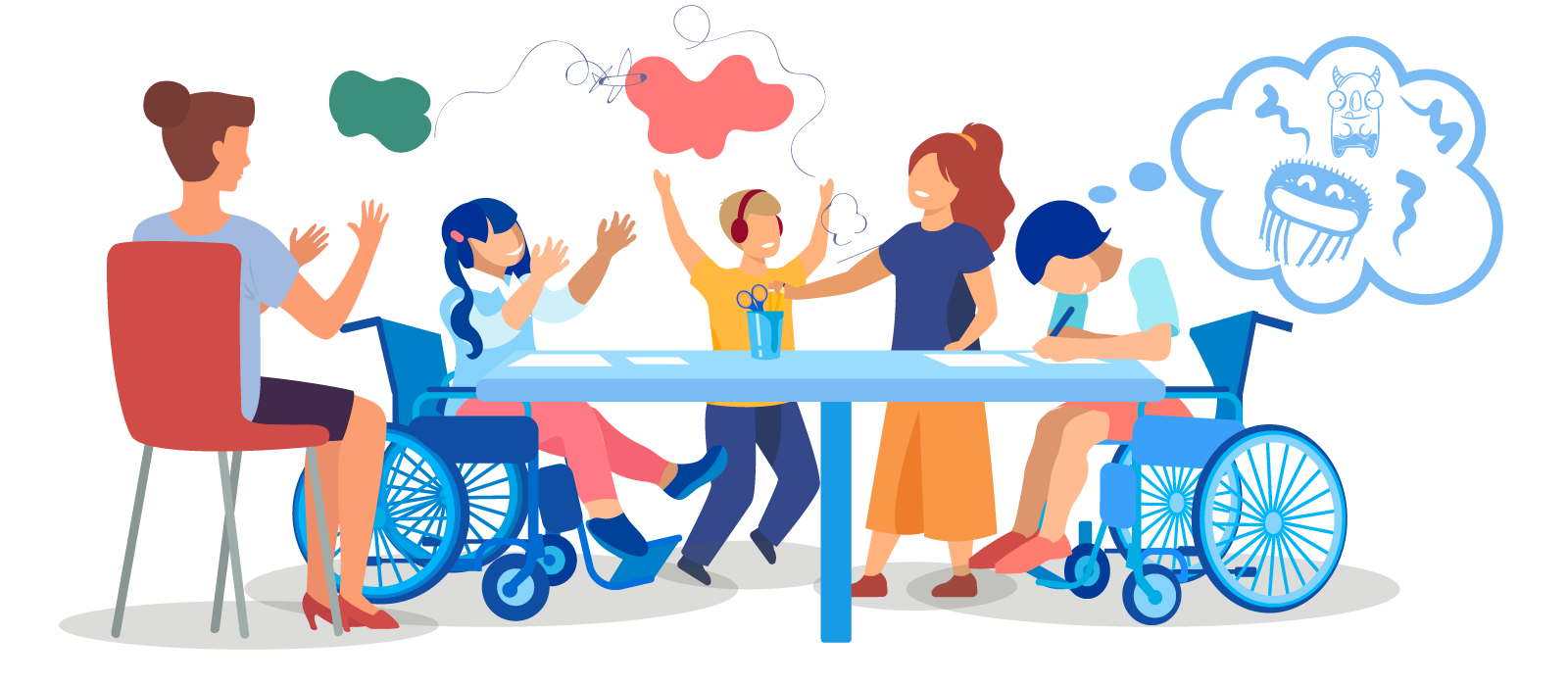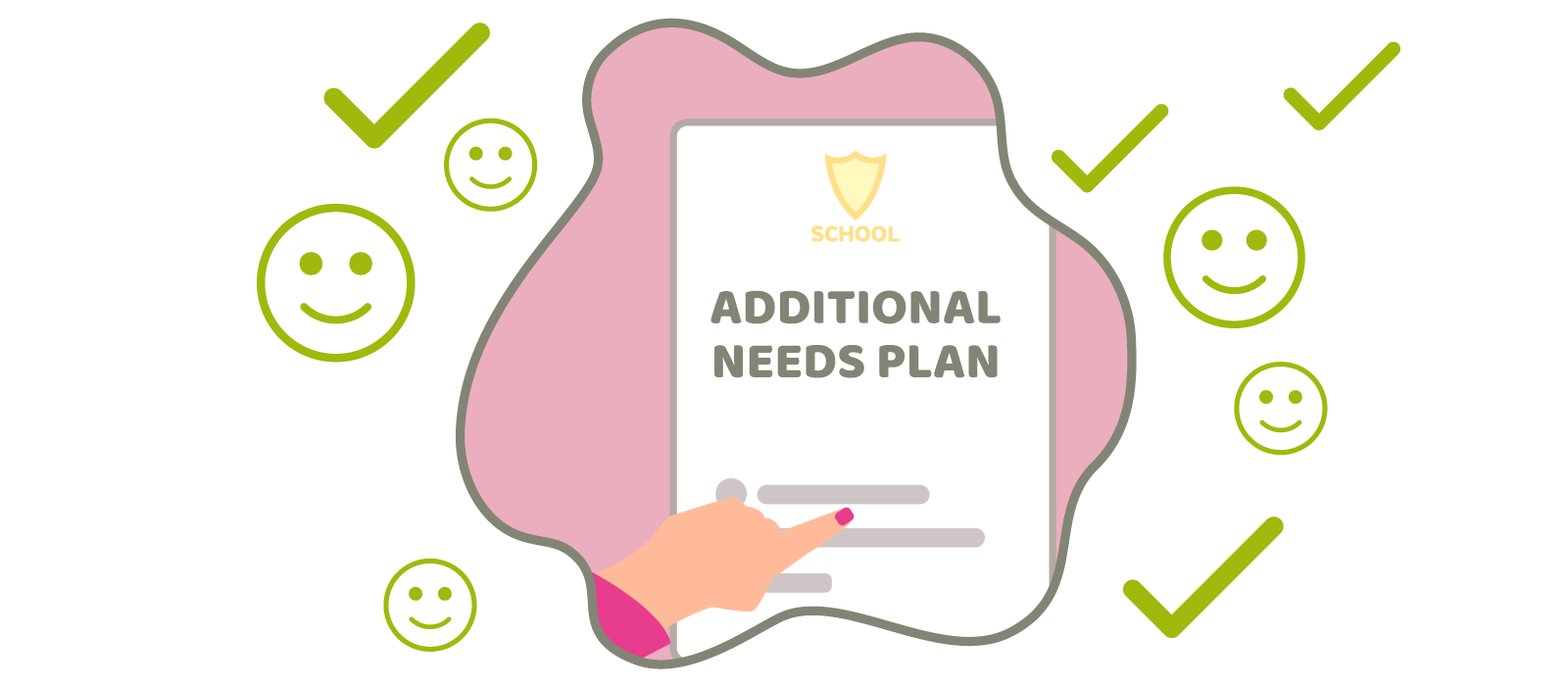Special Educational Needs
What is SEND?
SEND stands for Special Educational Needs and Disabilities. This is sometimes called SEN.
Just because a child has special needs does not mean they will not be able to do well in school. Lots of children with SEND go on to college or university and get a job in something they love.

SEND covers lots of different types of needs including:
- Physical disability
- Emotional needs
- Learning difficulties
- Communication difficulties
- Health needs
- Diagnosed conditions and undiagnosed conditions
If your child has SEND or you think they might have SEND, talk to the school so they can put things in place to help your child do their best.

I think my child might have SEND - what should I do?
If you think that your child might have special educational needs or a disability, then there are some steps you can take to get help. If you think their need is to do with their learning, you can speak to the school. Ask the school office to make an appointment for you to speak to the SENDCO (Special Educational Needs and Disability Coordinator). You can then explain what your worries are and give examples of things that your child is finding hard. The SENDCO will then be able to help come up with a plan for supporting your child.
If you think that your child’s needs are to do with their body or their health, this could be a physical problem. You should go to your child’s doctor to explain your worries. If they think that there may be something your child needs help with, they will be able to get the right people involved. You should also tell your child’s school that you have taken them to see the doctor about your worries so that they can do what they can to help too.
It can take time for the school to see the same behaviours and difficulties that you see. So if at first, the school does not think there is a problem, take some time to gather examples or evidence and go back to them if your worries have not improved.

My child has SEND - what do I do now?
If your child has SEND you can help by speaking to the school’s SENDCO. This is the person in charge of supporting children with special needs. See if there is anything you can do at home to help them.
You can ask for the school to make an Additional Needs Plan with you so you can see what they are doing to support your child.
Lots of children have special educational needs and disabilities. They go on to be happy and successful in school and once they leave school. The main thing you can do to support your child is to work together with the school to help them do their best. Trust that they can still succeed at school and when they get a job.

Exams & Tests

If your child needs help in exams, the school can do some checks to prove that your child might need some special support. If your child misses too much school, this can be hard to show that they need extra help so it is important that they don’t miss school.
Some of the exam help they may be able to get:
- A reader (someone to read the exam paper to them)
- A scribe (someone to write down their answers)
- The use of a laptop or computer
- Extra time
- Taking the exam in a small room away from others.
- Regular breaks in the exam
- An adapted test paper (eg. Brail)
What is an EHCP?

An EHCP stands for an Education, Health and Care Plan. This is a plan that is put together to support a child with SEND. Sometimes this can include some money that is given to the school to pay for extra help or equipment. The amount of money depends on what the needs are. Most needs can be met in mainstream schools (not special schools) and the funding is used to give them extra support. It is very rare for children to need a special school for their needs to be met. If a special school is needed, this will be decided in the EHCP.
Not all children who have SEND will need an EHCP to be successful in school. Just because your child has SEND does not mean that they will need an EHCP. They can still have an Additional Needs Plan. This is a plan that you and the school create together to give your child more help in school. It can be helpful to try an Aditonal Needs Plan before applying for an EHCP.
Things that can help you to get an EHCP.
- Not missing school – If your child misses too much school then they won’t know if your child is behind because of their needs or because they have just missed work.
- Working with the school and trying all the different support they put in place.
- You can still apply for an EHCP if you choose to Home Educate but you must complete this process yourself.
